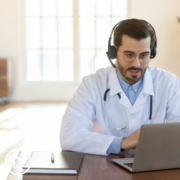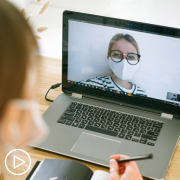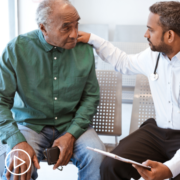Can Prostate Cancer Patients Rely on Telemedicine Without Risk?
Can Prostate Cancer Patients Rely on Telemedicine Without Risk? from Patient Empowerment Network on Vimeo.
Prostate cancer patients may have concerns about risks posed with telemedicine care. Dr. Heather Cheng from Seattle Cancer Care Alliance discusses telemedicine risks and benefits and specific situations when in-person visits help provide optimal patient care.
See More from Prostate Cancer TelemEDucation
Related Programs:

|
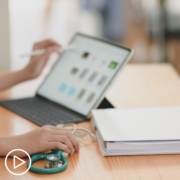
|
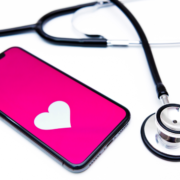
Are Mobile-Optimized Tools Making an Impact in Prostate Cancer? |
Transcript:
Sherea Cary:
Is relying on telemedicine when managing prostate cancer without risk?
Dr. Heather Cheng:
No, I think with anything, there’s always some risk, I think the risks that I see as much as there are possibilities and benefits is that it can be difficult sometimes to get all the information about a patient from two dimensions. There’s a lot to be said for seeing somebody in a room in 3D, and really getting a sense of their overall help, being able to examine them, so sometimes there are things we can’t replace in terms of listening to somebody’s heart and lungs then maybe doing other examination and procedures to really understand where the patient is things like biopsies, things like treatment, seems like blood draw may still need to be part of the patient’s care in order to give the best recommendations, so even though I think there’s a huge amount of possibility for benefit of telemedicine, there are some things that cannot be replaced, and that’s the danger that if patients don’t come, if I never see somebody in 3D in clinic, then I’m losing some valuable information about that patient, and so there are times when we still like to see people maybe it’s not as frequently, so it’s more convenient, but there are times when we definitely still need to meet with people face-to-face, do procedures or medications or just lay eyes on them in real life.
So, I think that’s a danger. If that’s not present at all, then we’re going to miss important things in people’s healthcare.

